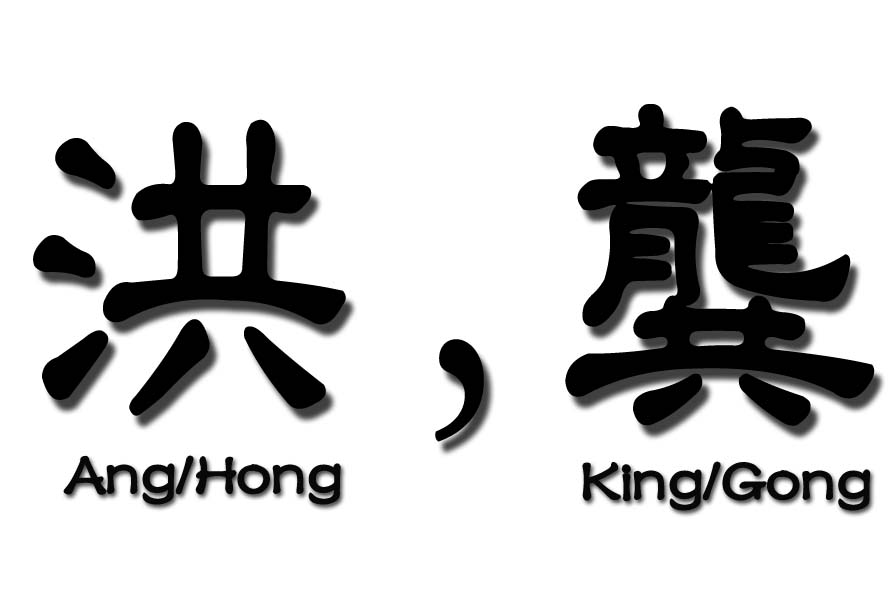First published in Tulay Fortnightly, Chinese-Filipino Digest 23, no. 15-16 (January 18-31, 2011): 5.
Desperate times call for desperate measures.
When enemies come, there are many ways to protect oneself: run away and hide, change your name, wear a disguise, and so on. These practices are as old as time, especially in China.
Self defense and fortunes of war led to creation of two surnames being introduced in this issue: 洪 (Ang in Hokkien, Hong in Mandarin) and 龔 (King in Hokkien, Gong in Mandarin).
Ang ranks 11th among the Chinese surnames in the Philippines and 99th in China, while King ranks 35th in the Philippines and 100th in China.
Both originated from the State Gong (龔) of Spring and Autumn Period (770-476 BC). They were the heirs of Gong Gong (共工), immigration officer of legendary Emperor Yao (堯).
As well, both surnames changed by adding another element to the original 共. For Ang, three dashes to represent water was added to turn 共 into 洪. The dragon character long (龍) changed 共 to 龔.
Both clans changed their surnames to avoid retaliation from family enemies. And both belong to the same family association Philippine Lioc Kui Foundation, Inc. (菲律濱六桂堂宗親總會), with four other surnames, namely Ong (翁), Ong (汪), Hong (方), Kang (江) – all in Hokkien.
Among the 39 family associations of Chinese surnames in the Philippines, most of them have members who share one common surname. Some associations’ members may represent two surnames, such as Cua (柯) and Chua (蔡).
But with Lioc Kui, its members representing six surnames came together to form one family association, indicating that they share the same origins. The common reason: to avoid enemy retaliation.
And the story behind this? During the chaos of war in the Five Dynasties period (907-960), a high official Wong Qiandu (翁乾度) had six sons. All but one (翁) changed their surnames in their fight against the northern Qidan (契丹) army to escape and avoid retaliation.
The five brothers changed their names to 洪, 龔, 汪, 方, 江 and then they hid in different places, eventually reuniting during early Song Dynasty (960-1279) after more than 20 years.
They all excelled in imperial examinations either in civil or military services and were conferred by the emperor the title of 六桂聯芳 (Liok Kui Lian Hong in Hokkien), which means “six sweet-scented laurels together.”





